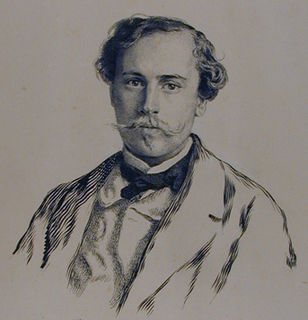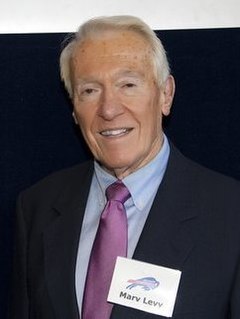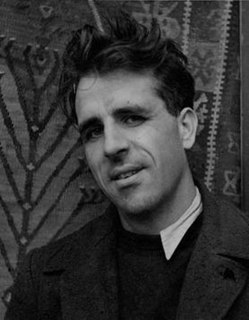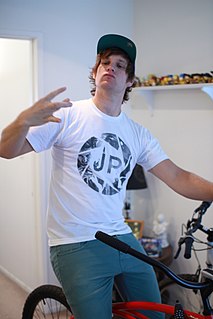A Quote by Jules de Goncourt
After reading Edgar Allan Poe. Something the critics have not noticed: a new literary world pointing to the literature of the 20th Century. Scientific miracles, fables on the pattern A+ B, a clear-sighted, sickly literature. No more poetry but analytic fantasy. Something monomaniacal. Things playing a more important part than people; love giving away to deductions and other forms of ideas, style, subject and interest. The basis of the novel transferred from the heart to the head, from the passion to the idea, from the drama to the denouement.
Quote Topics
After
Allan Poe
Away
Basis
Century
Clear
Critics
Deductions
Denouement
Drama
Edgar
Fables
Fantasy
Forms
Giving
Head
Heart
Idea
Ideas
Important
Important Part
Interest
Literary
Literature
Love
Miracles
More
New
Noticed
Novel
Other
Part
Passion
Pattern
People
Playing
Poe
Poetry
Pointing
Reading
Scientific
Something
Style
Subject
Than
Things
Transferred
World
Related Quotes
I just walk how I walk. But I am also really inspired by the physical drama in silent films from the beginning of the 20th century - it's ice cold and unreachable, like the stare of a sniper! I guess this look is something new that I brought into the world of fashion: a dark and dramatic, 19th century Russian literature and drama inspired look.
What was needed was a literary theory which, while preserving the formalist bent of New Criticism, its dogged attention to literature as aesthetic object rather than social practice, would make something a good deal more systematic and 'scientific' out of all this. The answer arrived in 1957, in the shape of the Canadian Northrop Fryes mighty 'totalization' of all literary genres, Anatomy of Criticism .
It seems to me that literature is giving way a little bit to the immediacy of other diversions, other forms of entertainment. What will it be in fifty years? I don't know. Will there be printed books? Probably, but I'm not sure. There's always going to be literature, though. I believe that. I think literature has a way of getting deep into people and being essential. Literature has its own powers.
There are things that are more important than the news and what’s happening today. There are these archetypes which are part of the human imagination since humans were presumably imaginative. And I think that’s what [people] find touching, these eternal ideas. It’s one of the things that makes fantasy something that tends to stand the test of time because we’re reading, 50 years later, The Lord of the Rings.
There are companies like Facebook that wield tremendous power over how Americans understand the world. Do they have a social responsibility now? That's the question we're only beginning to ask. Literature still has this power to do things that other forms of media don't have. The process of reading and writing and having arguments about ideas is valuable. I'm afraid it's something we're losing.
If Edgar Allan Poe were alive today, his agent would be constantly slapping him upside the head with tightly rolled copies of his brilliant short stories and novelettes, yelling, 'Full-length novels, you moron! Pay attention! What's the matter with you -- are you shooting heroin or something? Write for the market! No more of this midlength 'Fall of the House of Usher' crap
The amplification of our diverse literary voices is a political act of resistance. Our lives are important, too. Our lives should be represented in our literature. And that literature is vital, compelling, and accessible. That literature deserves to be disseminated and noticed and available. And with respect to the dissemination and promotion of diverse voices - librarians, educators, and editors of literary journals play such an important role. They deserve not only a hearty shout out, but also our thanks and support.
There is something essential and necessary about the immediacy and democracy of poetry. If you look at the history of literature, poetry is the one enduring genre from Homer to Ashbery - no other literary form has lasted as long. The novel is only two or three hundred years old... And yes, it's mainstream if we look back, we often turn to poetry to encapsulate what was going on in a particular moment because it crystalizes the experience in a very condensed and meaningful way.






































